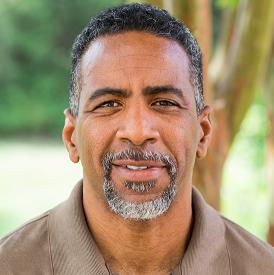This is mark Joseph “young” blog entry #232, on the subject of Larry Norman, Visitor.
I floated the suggestion on social media that I might begin a somewhat disjointed series of my recollections of the Christian Contemporary and Rock music scene in the late 70s and early 80s, and it was well received, so I’m going to begin. It seems that one cannot begin such a discussion without Larry Norman, so that is where we will start.
First, though, let’s clarify my credentials. I was in high school from 1969 through 1973 (that’s four years, fall to spring), and although the east coast was a long way from the center of the action, the Jesus Movement had hit our town hard, so I knew a fair amount of the music of the time. I then attended two Christian colleges in succession, and after obtaining two degrees in biblical studies along with a lot of exposure to the music my peers were hearing, I tried out for an established Christian band (more on that later) and in 1979 took a job as a disk jockey on a Christian radio station, WNNN-FM, which a short time before my arrival had been ranked the #12 CCM/Christian Rock station in the country, and just before my departure was said still to be on the short list of fifty radio stations which Christian record company promotions people made sure to call every week. We reported our top songs to the magazine then called Contemporary Christian Music Magazine, which later shortened its name to Contemporary Christian Magazine but kept the CCM logo. More significantly, during that span of five years and a month I heard every contemporary Christian recording released by a major label, and quite a few independent ones. I lived this music.
Of course, memory is imperfect, but it’s one of those things that the longer you think about a subject the more you recall, so we’ll be remembering a lot along the way.
Song title links are to YouTube videos; no representation is made as to whether they are legal copies.

My problem with discussing Larry Norman is that I don’t really feel that I knew him all that well. I owned a pirated copy of the live performance of Sing that Sweet Sweet Song of Salvation (link is the studio version), and I must have heard other recordings of his. I jammed on Why Don’t You Look Into Jesus with some college friends who knew it, and knew Six-Sixty-Six, Unidentified Flying Object, and I Wish We’d All Been Ready–three songs strongly reflecting his premillenialism, the last of which made it into a few hymnals–but I was never a serious fan beyond recognizing his importance in the field. I attended a concert he gave at Gordon College, but only remember the conversation I had with him backstage afterwards (the gist of which is given in my previous web log post #163: So You Want to Be a Christian Musician); my wife says we heard him again at the Levoy Theater in Millville, New Jersey, but I do not remember so much as being at the Levoy. I can picture the cover of his cleverly-entitled album Only Visiting This Planet, but barely remember the title song and am not certain I heard any more of it than that. In the five years I was on the radio station, we never received a single recording from him, so although he was still touring for years (it’s what musicians do, apparently–I recently heard that Blood, Sweat, and Tears was playing at the Levoy) he seemed to have largely dropped off the radar by the early 80s. He died early in 2008 at sixty years old.
Still, his impact was never insignificant. He is known to have been instrumental in the salvation of early CCM folk-rock artist Randy Stonehill (and we did receive one album from him during those early 80s years). He was an acquaintance of Paul McCartney, and I recently heard that Bob Dylan came to Christ in Larry’s kitchen. He is said to have been the original Christian rock musician, and may well deserve the title.
On the other hand, it might well be argued that his early dominance can be attributed to a lack of competition. His at times squeaky tenor voice is an acquired taste, and his songs were mostly simple pop progressions and melodies with shallow lyrics–good solid evangelistic material, most of it, but not very competitive with the sounds that would come starting in the mid seventies. If you liked Larry Norman, it was almost certainly because he was the first decent alternative to secular rock and pop music, or because you had met him and heard him live. He was charismatic on stage, and well worth seeing in concert. He was a powerful personality off-stage, and a minister with keen discernment and an understanding of the people he met. His ministry counts for a great deal, even if his music is not all that remarkable.
And in heavenly terms, that’s what really counts.




